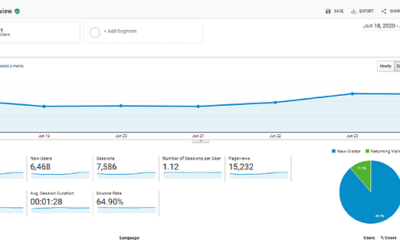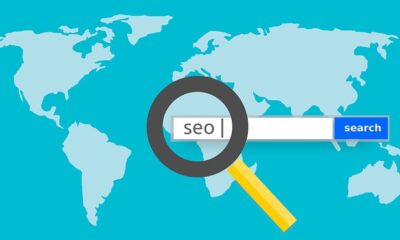Digital Marketing is becoming a must-do for all businesses today. Whether small, medium or large, there are very few businesses that are immune to the allure of digital marketing.
There is often a misconception that large and successful brands have it easy when it comes to marketing, given the reputation that they’ve already earned, and the huge marketing monies and resources at their disposal.
But here’s the real deal. Despite the obvious advantages that these brands might have, it is as much of an effort to stay on top, as much as it is to reach the top. And in the digital world, where young brands do not need huge budgets to have a presence, the competition can get even more intense, with many more players vying for the same space and the same audience on digital. Moreover, there is much information and misinformation about what works and what doesn’t.
However, there are some large players across the globe that are leading the way when it comes to doing Digital Marketing & SEO, and continue to lead both online and offline. Irrespective of the budgets they employ, these brands are focussing on doing simple things right, in a consistent manner. And while at it, they also adapt their communication and strategy as needed, to real-time market and customer dynamics.
I’d like to spotlight the top proven tactics that would be of value for small and medium businesses as well.
- Investing in User Experience
Creating a pleasant user experience (UX) online is an extremely important aspect of digital success, and for that matter, even marketing in general.
Successful brands understand that the quality of a visitor’s online experience can have a huge impact on whether they choose to interact or not with the brand. It is for this reason that they invest significant time and effort in creating a stellar experience for their online visitors, akin to their offline experience.
Right from the content and design to creating a smooth user journey, the focus is to design an experience around what the target audience needs and wants. While research can help in understanding what works best, it is important to keep in mind that your owned online assets should be optimized for both web and mobile, so as to ensure a seamless experience for the visitor.
A great UX can augment visitor interest, which can translate into leads and hopefully, revenue in the long run and it is worth investing time in getting this right.
- Strategic Content Marketing
Content Marketing is becoming a highly ranked buzzword today and has evolved from a “good to have” to a “must-have” element in the digital marketing mix. Loosely defined, content marketing stands for creating relevant, engaging and valuable content, and distributing it on the right channels to attract, convert and retain your target audience. In other words, delivering the right content at the right time to the right person forms the crux of good content marketing.
It is interesting to note that while the broad digital tactics might be similar across competing brands, it is really content that helps a brand stand out amidst the information clutter in the online space.
Successful brands usually have a well-defined content strategy with clearly outlined goals and KPIs in place. If we were to look for commonalities among the content strategies of these brands, we would see that they employ different content formats that span text, audio, visual, video and more. Also, we would all agree that the brands we feel closest to bring us content that is entertaining, informative, evocative, inspirational and enriching or even all of these at once! These brands invest significant time and resources to create high-quality content for each step of the buyer journey, and beyond. There are some smart brands that not only create their own content but thrive on user-generated and curated content as well.
Whether you choose to create or curate, good content is deeply rooted in an accurate understanding of your target audience and what they really want.
Social Media platforms have become the place to hang out online, especially post the pandemic. Unlike the case a few years back, an increasing number of social media users are willing to engage with brands online. Social channels offer a dynamic, ever-evolving virtual space where people share about what is important to them, and connect with people, brands and causes that they care about.
Successful online brands use this as a wonderful opportunity to not only reach out and engage with their diverse audiences’ online, but also have interactions that drive preference, conversions and encourage repeat purchases. These brands also monitor their social metrics and correlate it with business performance metrics like ROI, leads and sales.
For success on social, it is also important to also identify the right platforms where your customers spend more time and build a strong presence with well-planned content, campaigns and real-time responsiveness.
- Search Engine Optimization (SEO)
SEM or PPC usually makes it to most digital marketing plans, but SEO is where the real reward lies. Most purchase decisions today start with a simple online search, and organic search results command much higher credibility as compared to paid results. In fact, this behaviour is so deeply embedded, that it feels only natural to look online when we are considering making a purchase decision. This is an era dependent on search engines, and no brand, big or small, would want to miss out on the opportunities to connect with newer audiences online.
Given that Google, which is currently the most popular search engine, receives over 57,000 searches per second, SEO is something that nobody can take for granted. It isn’t enough for large brands to rest on their offline reputation, as if they do not hold their rank, they could be toppled over by newer entrants to the market. Yes, SEO can be an equalizer of sorts.
And so, successful online brands look at SEO as an investment to maintain their online turf. Not only is it a great way to strengthen the brand association with the category, but it is a great avenue for cost-effective lead generation as well. Most of these brands and businesses also optimize for local SEO, to ensure that they are discoverable by those in close vicinity, as most people search for products and services on their handheld devices when they are on the go. Social SEO is yet another tactic that can contribute to overall visibility and rankings.
- Customer Behaviour Tracking & Data Analytics
Data mining and analytics has become a veritable buzzword today, and rightly so. Digital Marketing success today cannot be perceived without data analytics. The various analytics tools available today allow businesses to fairly predict customer behaviour and plan their campaigns accordingly. It is now easy to understand what drives prospective customers to you, what makes them stay or leave, how they feel about your brand and even whether your digital marketing efforts are working the way you had intended, among other things.
From Google Analytics for your website to independent social media analytics tools, there is a tool to measure almost anything on digital. And this makes it possible to observe and understand behaviours and patterns that we might have otherwise missed.
Successful brands have a habit of closely monitoring their data from their website as well as social media channels, mining actionable insights from it and swiftly responding as necessary, to always stay on top of their digital game. Correctly interpreting data requires a certain level of expertise, but when done correctly, it can empower businesses to make the best possible use of digital.
To sum up, well-executed Digital Marketing and SEO strategies can help your business reap rich dividends in the form of higher brand awareness and preference, and a positive impact on your bottom line. But there is one thing more important than the perfect digital marketing plan. Successful online brands go a step further and ensure that there is alignment and synergy between the online and offline interaction with their visitors. There is no point in offering a great virtual experience if you cannot back it up in the real world. And if you are aspiring for digital success, this is something you cannot ignore.





 How to7 years ago
How to7 years ago


 More4 years ago
More4 years ago


 More6 years ago
More6 years ago


 Interview4 years ago
Interview4 years ago


 Other Internet Tech6 years ago
Other Internet Tech6 years ago


 More6 years ago
More6 years ago


 Business Ideas6 years ago
Business Ideas6 years ago















